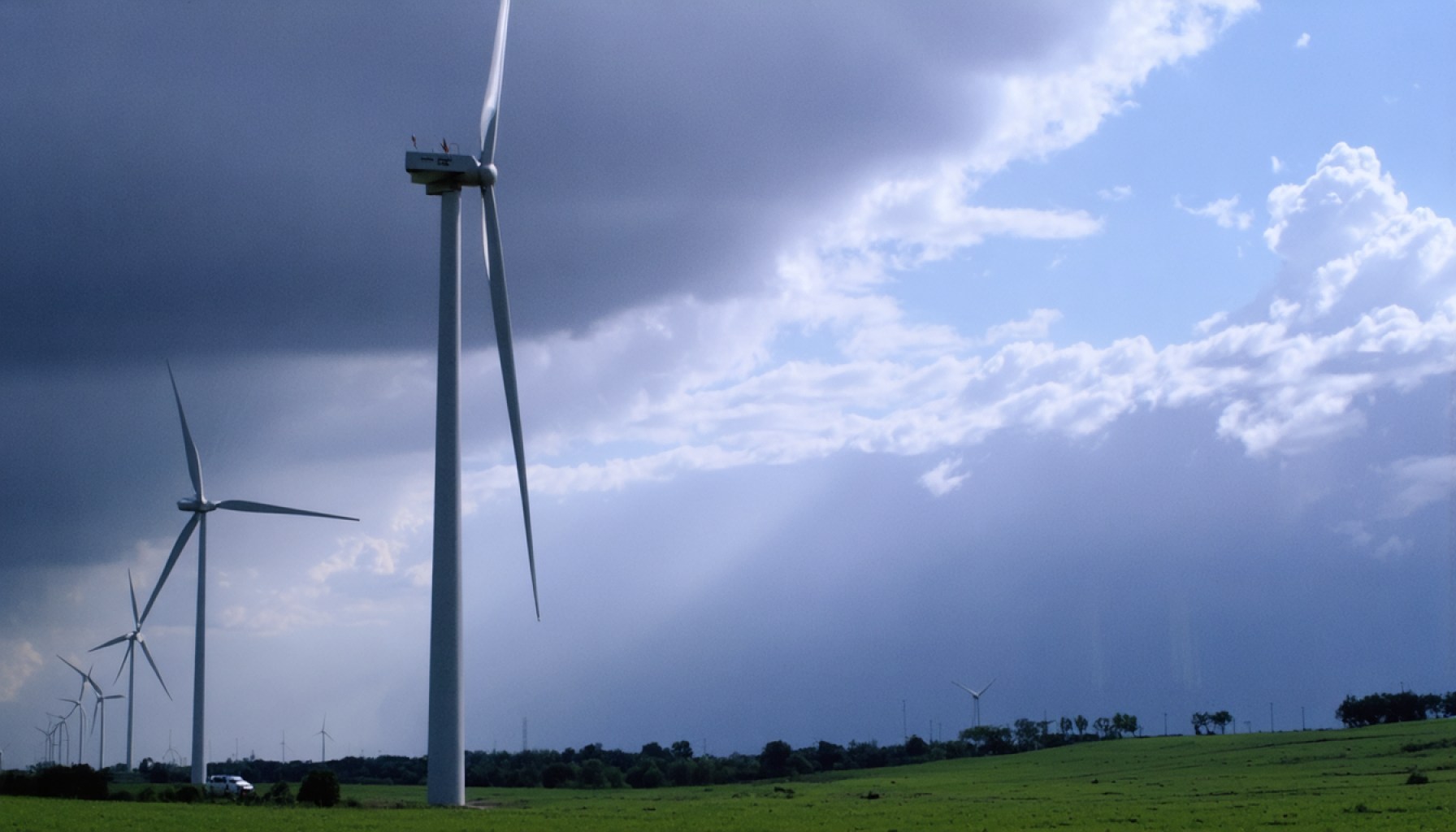- Controversy surrounds “Bright Green Lies,” which criticizes renewable energy and advocates for a non-industrialized world.
- The documentary’s claims against solar and wind energy are disputed online as hyperbolic and lacking scientific rigor.
- Official data counters the documentary, highlighting renewable energy milestones in Germany and the U.S.
- Technological advancements in energy are reducing the ecological impact of renewables, challenging the criticism of resource depletion.
- While acknowledging limitations of renewables, it’s crucial to dispel misinformation and discuss sustainable energy based on facts.
- The global consensus is moving towards embracing renewable energy as essential for a sustainable future.
A fierce tug-of-war over the future of energy has erupted on the digital stage, as Reddit users meticulously dissect the controversial claims showcased in the documentary and book, “Bright Green Lies.” The title, which boldly criticizes renewable energy sources, proposes a world detached from industrial conveniences. Yet, critics argue its narrative leans heavily on hyperbole instead of grounded scientific data.
Envisioned as a searing critique of renewable initiatives, the documentary asserts that solar and wind energy are fundamentally flawed ventures, incapable of sustaining our planet’s energy needs. Its arguments hinge on myths of impracticality, citing supposedly insurmountable constraints like material scarcity and excessive land use. Online, the community rallied, challenging these assertions with fervor and fact.
Official statistics reveal a different story. The International Energy Agency highlights that in 2022, over 39% of Germany’s energy was derived from renewables. In the following year, Germany’s clean energy share surpassed 50%, a milestone indicating significant strides toward a sustainable future. Across the Atlantic, wind energy has eclipsed coal as a dominant force in U.S. electricity production. These milestones underscore the potential of clean energy when backed by robust policy and innovation.
Meanwhile, advancements in energy technology continue to shrink the ecological footprint of renewables. Efficient battery recycling methods, the rise of offshore wind farms, and smarter grids collectively counter the narrative of unbridled land consumption and resource depletion. Unlike fossil fuels, renewable sources eschew the harmful emissions exacerbating health and climate crises.
“Bright Green Lies” ventured into treacherous territory by questioning the viability of industrial civilization itself. Yet such audacious propositions, critics argue, risk stalling the momentum of critical environmental progress.
The debate highlights a crucial lesson: while it’s imperative to acknowledge renewables’ limitations, writing them off based on misleading premises serves no one. With relentless misinformation sowing doubt, the need for clarity and actionable, fact-based discussions on sustainable energy has never been greater.
In an era fraught with environmental challenges, the consensus is clear — embracing renewable energy solutions is not just feasible but essential. Each advancements signals a collective step toward a cleaner, more sustainable world.
The Future of Renewable Energy: Myths, Facts, and What Lies Ahead
Unpacking the Renewable Energy Debate
The digital realm has become a battleground for the future of energy, amplified by discussions surrounding the documentary and book, “Bright Green Lies.” The film challenges the viability of renewable energy sources like wind and solar, claiming they cannot meet global energy demands due to material scarcity and land consumption. However, a careful examination of facts paints a more optimistic picture for renewables, backed by data and expert analysis.
Real-World Use Cases and Industry Trends
1. Germany’s Renewable Success: As of 2023, Germany’s energy mix reveals a stunning transformation, with over 50% of electricity generated from clean sources, according to the International Energy Agency. This progress challenges the claims made in “Bright Green Lies” and underscores the potential of renewables with the right infrastructure and policies.
2. U.S. Wind Energy: The United States has witnessed wind energy surpass coal, highlighting the diminishing role of fossil fuels in the energy landscape. Investment in wind technology and infrastructure has made this transition feasible and economically beneficial.
3. Battery Innovation: Efficient recycling and advancements in battery technology reduce the ecological impact of energy storage, addressing concerns about material depletion and waste. Tesla and other companies are pioneering recycling processes, ensuring longer lifecycle and reuse of key components.
Controversies and Limitations
While renewable technologies offer significant environmental benefits, they are not without their challenges. Critics point to intermittent energy supply and high initial investments as obstacles. However, energy storage solutions and economies of scale are gradually addressing these issues, reducing costs and improving reliability.
Insights and Predictions
1. Emerging Technologies: Offshore wind farms, smaller solar panel designs, and improved energy storage solutions are on the horizon. These developments promise to enhance efficiency and reduce the environmental footprint of renewables.
2. Policy and Innovation Synergy: Successful adoption of renewable energy is closely tied to strong governmental policies and continuous innovation. Incentives for clean energy and research into new technologies are essential for sustained progress.
Pros & Cons Overview
Pros:
– Low Emissions: Renewables drastically cut carbon emissions, pivotal in combating climate change.
– Job Creation: The renewable sector creates jobs in technology, installation, and maintenance.
– Energy Independence: Diversifying energy sources reduces reliance on imported fuels.
Cons:
– Resource Intensity: Manufacturing solar panels and wind turbines require substantial materials and energy.
– Intermittency: Solar and wind energy depend on weather conditions, necessitating robust storage solutions.
Actionable Recommendations
1. Support Renewable Projects: Invest in community and household renewable installations, such as solar panels.
2. Advocate for Policy Changes: Engage in local and national dialogues to support clean energy policies.
3. Stay Informed: Follow credible sources and experts in the energy field to remain updated on technological advances and policy changes.
Conclusion
The renewable energy debate underscores the critical need for informed discussions. While acknowledging limitations, dismissing renewables due to misconceptions can derail progress. With continued advancements and robust policies, the shift to sustainable energy is not just plausible but necessary. For further insights on sustainability and environmental solutions, you can explore resources on United Nations and International Energy Agency.
By embracing innovation and leveraging policy, a cleaner future is within reach, demonstrating that the journey to sustainable energy is not without its challenges but is indeed promising.
